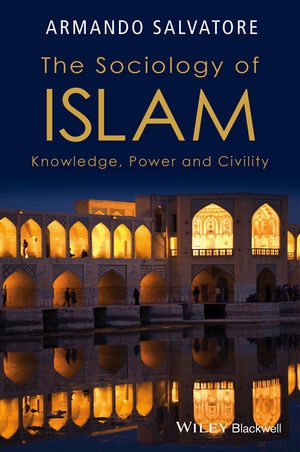Ulteriori informazioni
Informationen zum Autor Armando Salvatore is Professor of Global Religious Studies and Keenan Chair of Interfaith Studies at McGill University. His most recent publications are Rethinking the Public Sphere Through Transnationalizing Processes (edited with Oliver Schmidtke and Hans-Jörg Trenz, 2013), Islam and Modernity: Key Issues and Debates (edited with Muhammad Khalid Masud and Martin van Bruinessen, 2009), The Public Sphere: Liberal Modernity, Catholicism, Islam (2007, pb 2010), Islam in Process: Historical and Civilizational Perspectives (edited with Johann P. Arnason and Georg Stauth, 2006), and Religion, Social Practice, and Contested Hegemonies (edited with Mark LeVine, 2005). Klappentext The Sociology of Islam provides an accessible introduction to this emerging field of inquiry, teaching and debate. The study is located at the crucial intersection between a variety of disciplines in the social sciences and the humanities. It discusses the long-term dynamics of Islam as both a religion and as a social, political and cultural force.The volume focuses on ideas of knowledge, power and civility to provide students and readers with analytic and critical thinking frameworks for understanding the complex social facets of Islamic traditions and institutions. The study of the sociology of Islam improves the understanding of Islam as a diverse force that drives a variety of social and political arrangements. Delving into both conceptual questions and historical interpretations, The Sociology of Islam is a transdisciplinary, comparative resource for students, scholars, and policy makers seeking to understand Islam's complex changes throughout history and its impact on the modern world. Zusammenfassung The Sociology of Islam provides an accessible introduction to this emerging field of inquiry, teaching and debate. The study is located at the crucial intersection between a variety of disciplines in the social sciences and the humanities. Inhaltsverzeichnis Preface and Acknowledgments ixIntroduction 1Knowledge and Power in the Sociology of Islam 1Knowledge/Charisma vs. Power/Wealth: The Challenge of Religious Movements 18Civility as the Engine of the Knowledge-Power Equation: Islam and 'Islamdom' 23PART I Patterns of Civility1 The Limits of Civil Society and the Path to Civility 43The Origins of Modern Civil Society 43Civil Society as a Site of Production of Modern Power 50Folding Civil Society into a Transversal Notion of Civility 572 Brotherhood as a Matrix of Civility: The Islamic Ecumene and Beyond 73Between Networking, 'Charisma,' and Social Autonomy: The Contours of 'Spiritual' Brotherhoods 73Beyond Sufism: The Unfolding of the Brotherhood 85Rewriting Charisma into Brotherhood 92PART II Islamic Civility in Historical and Comparative Perspective3 Flexible Institutionalization and the Expansive Civility of the Islamic Ecumene 105The Steady Expansion of Islamic Patterns of Translocal Civility 105Authority, Autonomy, and Power Networks: A Grid of Flexible Institutions 114The Permutable Combinations of Normativity and Civility 1184 Social Autonomy and Civic Connectedness: The Islamic Ecumene in Comparative Perspective 131New Patterns of Civic Connectedness Centered on the 'Commoners' 131Liminality, Charisma, and Social Organization 140Municipal Autonomy vs. Translocal Connectedness 147PART III Modern Islamic Articulations of Civility5 Knowledge and Power: The Civilizing Process before Colonialism 165From the Mongol Impact to the Early Modern Knowledge-Power Configurations 165Taming theWarriors into Games of Civility? Violence, Warfare, and Peace 176The LongWave of PowerDecentralization 1896 Colonial Blueprints of Order and Civility 201The Metamorphosis of Civility under Colonialism 201Court Dynamics and Emerging Elites: The Complexification of the Civilizing Process 218Class, Gender, and Generation: The Ultimate Testing Grounds...

